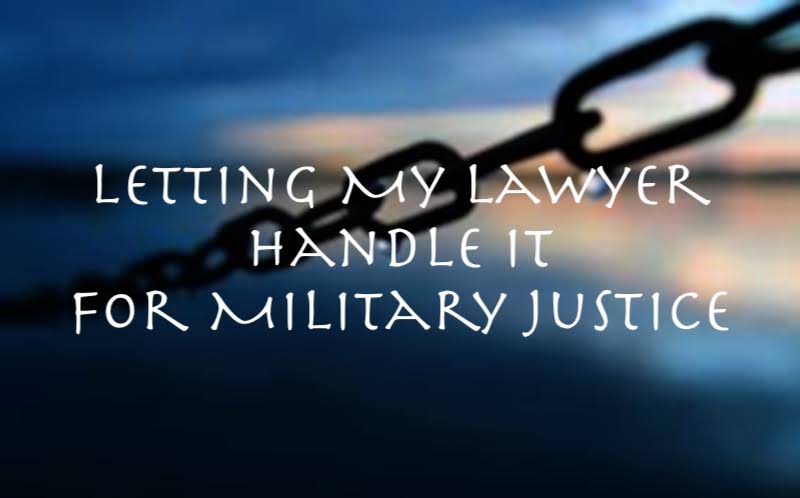
This idea of lawyers being used as shields is not a new one. Plenty of movies and TV shows have moments where someone says the phrase “talk to my lawyer!” Often this phrase is touted against an adversary, enemy, or just someone who is in a position of authority or power. It’s also used in seizing a moment of power, where someone elevates a conflict to a new level and suggests that serious consequences will follow. But can a military service members do that? The answer is a little complicated and depends on the situation they are in.
One situation is when you “invoke” in response to questioning. When a military member is accused of misconduct or is suspected of committing a crime, they will eventually be approached by an investigator of some kind, either military law enforcement or a command-appointed investigator. Personnel at that point may AND SHOULD invoke their rights: the right to remain silent AND the right to have a lawyer present. These rights come from both the UCMJ and the Constitution. They are a legal requirement for law enforcement (or command investigators) to back off. If this is the situation that you are facing, you absolutely can and should say, “Talk to my lawyer!”
Another potential scenario where you might need to say “talk to my lawyer” is if you are approached by military legal personnel about an open adverse action. For example, if you have court-martial charges, you should not be approached by a government attorney or paralegal directly. The Rules of Professional Responsibility for Lawyers prohibit an attorney from talking to somebody who is represented by another attorney. That rule also applies to personnel under the supervision of that attorney, like paralegals, who may not do so either. In the context of the military, this means that “JAGs” and paralegals are not supposed to communicate directly with someone who is represented.
When it comes to dealing with your chain of command however, the answer is no. There is no legal right or rule that allows a servicemember to refuse to interact with their chain of command. Simply put, lawyers do not come between commanders and their personnel. As much as it may be unpleasant, and even if you feel the command is out of line or wrong about things, you cannot refuse to report or appear before your own military leadership.
So, what do you do if your chain of command tells to report to them, or somewhere like the Criminal Investigation Command (CID) office? What if they want to talk about your misconduct? Do you have to go? Do you have to talk to them? Can you tell them “talk to my lawyer?”
First and foremost, you always need to go wherever you are ordered to go. For more information about a service member’s requirement to report to law enforcement channels, please see this blogpost. Compliance with lawful orders is always a requirement for all personnel. It is also a good idea to not give your commander an extra reason to pursue adverse action against you. Remember, they have a great deal of discretion.
Your chain of command may talk TO you about your offense or what they plan to do about it, but the rules change if that conversation turns to questioning. If that happens, you should respectfully tell them that you have invoked your rights or that you are represented by counsel. Tell them that, based on advice of counsel, you cannot discuss any details of the offense. Your best course of action is to be respectful, listen, and say nothing.
We completely understand how stressful and frustrating it can be to have your command pulling you in and pressuring you to talk. While we cannot come directly between you and your commander, we can take an aggressive role interacting with the commands legal and law-enforcement components and push back to ensure you are treated fairly and that your matter is handled appropriately. Plus, we can help guide you in your day-to-day dealings with your command while you are under investigation.
If you are suspected of misconduct, we would encourage you to contact us for a free confidential consultation. Our team is highly experienced and adept at dealing with law enforcement, commanders, and government attorneys
You Might Also Like These Articles

To be candid, as a civilian defense counsel and military justice lawyer I still am having a hard time wrapping…
Read More
A common question that we hear is... What is a show cause board, what is a board of inquiry? [embed]…
Read More
Can I be prosecuted in the military for what I post online? [embed] https://youtu.be/dYKVJAA4uhk [/embed] The answer is of course,…
Read More




 REQUEST A CONSULTATION
REQUEST A CONSULTATION 